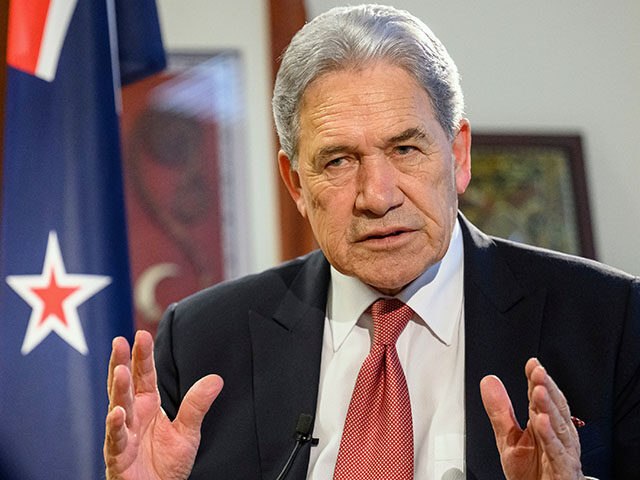New Zealand First (NZF), a minority party in the current governing coalition, introduced a bill Tuesday that would enshrine the biological definition of men and women into law.
“The purpose of this amendment is to uphold legal certainty, protect the integrity of sex-based rights and ensure that language in law reflects biological reality,” the NZF bill said.
The New Zealand bill is part of a global resistance to militant trans ideology that includes President Donald Trump’s executive order against transgender people serving in the military, Hungary amending its constitution to acknowledge the scientific reality of two human genders, and the United Kingdom’s landmark ruling last week confirming that only biological females are “women” under the law.
“The need for legislation like this shows how far the deluded left has taken us as a society, but we are fighting back,” said NZF leader and Deputy Prime Minister Winston Peters.
Peters said on Monday that his party’s proposed legislation is “not about being anti-anyone or anti-anything.”
“You can recall when we talked about women being unfairly competed against in sports, keeping men out of women’s and girls’ changing rooms. When we said that, some media said we’re going down a rabbit hole, or on another planet, as some politicians said. But look at recent events: the mass majority of New Zealanders want a fair go for women,” Peters said.
“This Bill would ensure our country moves away from the woke ideology that has crept in over the last few years, undermining the protection, progression, and safety of women,” he said in a social media post on Monday.
Other party leaders in New Zealand adopted a dismissive attitude toward the bill. Labor Party leader Chris Hipkins, for example, derided the initiative as “typical populist politics” that would distract from more urgent issues like the rising cost of living, high unemployment, and health care.
“They don’t really have a coherent program, and they’re certainly not focused on the things that are required to lead New Zealand forward,” Hipkins said of Peters’ party.
Peters shot back that Hipkins was “out of touch” and should try reading the NZF bill, so he would not be caught “like a possum in headlights” the next time someone asks him what a woman is.
NZF is one of three parties in the coalition government, and with only 11 seats out of 123 in the parliament, it has little power to move legislation. Critics of the minority party have accused it of filling the legislative docket with headline-grabbing proposals that do not progress toward adoption into law.
Under New Zealand’s parliamentary system, a “Member’s Bill” – introduced by a member who is not a minister – must await a limited number of slots for consideration on every other Wednesday when the parliament is in session. The bill must essentially win a raffle in order to get one of the coveted spots for consideration, unless at least 61 members of parliament (MPs) support bringing it forward for a vote.
This means many Members’ Bills never come anywhere near a vote, and since each MP can only have one bill on the ballot at a time, bills that are not chosen fairly quickly for a full vote are often withdrawn in favor of other proposals. To make room for its “Definitions of Woman and Man” bill, NZF had to withdraw an older bill that called for people who used bathrooms not consistent with their sex to be fined.




